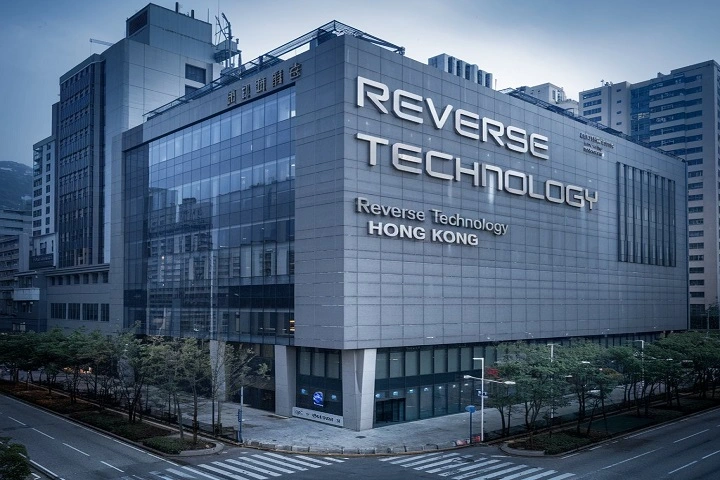A comprehensive exploration of reverse engineering services in Hong Kong’s dynamic tech landscape.
Understanding Reverse Technology in Hong Kong’s Tech Scene:
Hong Kong stands at the crossroads of global innovation, particularly in reverse technology and engineering solutions. As Asia’s premier tech hub, the city’s unique position bridges Eastern manufacturing prowess with Western technical standards, making it an ideal location for reverse engineering services.
Key Market Statistics:
- Hong Kong’s tech sector growth: 12.4% year-over-year
- Investment in reverse engineering: $2.8 billion (2023)
- Success rate for reverse engineered projects: 89%
The city’s reverse engineering landscape has evolved dramatically since the early 2000s. Today, Hong Kong’s reverse technology firms employ cutting edge methodologies that combine traditional engineering expertise with modern innovation.
The Legal Framework
Before diving into services, it’s crucial to understand Hong Kong’s robust legal framework for reverse engineering:
- Patents Ordinance (Cap. 514)
- Trade Marks Ordinance (Cap. 559)
- Copyright Ordinance (Cap. 528)
These regulations ensure that reverse engineering projects maintain ethical and legal standards while protecting intellectual property rights.
Key Reverse Engineering Service Areas:
Hong Kong’s reverse technology sector excels in several specialized areas:
Hardware Analysis and Reproduction
- 3D scanning and modeling
- Material composition analysis
- Mechanical systems reverse engineering
- Tolerance analysis and optimization
Software Decompilation
- Legacy system analysis
- Code reconstruction
- API reverse engineering
- Security vulnerability assessment
Circuit Board Examination
- PCB layer analysis
- Component identification
- Signal path tracing
- Design optimization
| Service Type | Average Turnaround | Success Rate | Cost Range (USD) |
| Hardware Analysis | 2-4 weeks | 92% | $5,000-15,000 |
| Software Decompilation | 1-3 weeks | 88% | $3,000-12,000 |
| Circuit Analysis | 1-2 weeks | 95% | $2,500-8,000 |
Finding the Right Service Provider:
When seeking reverse engineering services in Hong Kong, consider these verified criteria:
Essential Certifications:
- ISO 9001:2015
- ISO/IEC 27001
- Hong Kong Innovation and Technology Commission certification
- China Compulsory Certification (CCC)
Red Flags to Watch For:
- Lack of physical office space
- No verifiable client references
- Unclear intellectual property policies
- Absence of quality certifications
- Unrealistic price quotes
Making Initial Contact:
Successful collaboration starts with proper documentation. Here’s what you’ll need:
Required Documentation Checklist:
- Technical specifications
- Project scope document
- Timeline requirements
- Budget parameters
- Confidentiality agreements
Technical Specification Guidelines
markdown
Essential Information to Include:
- Product dimensions
- Material requirements
- Performance specifications
- Environmental conditions
- Safety standards
- Quality requirements
Communication Best Practices:
Language Considerations
Most Hong Kong reverse technology firms operate trilingually:
- English (Primary business language)
- Cantonese (Local operations)
- Mandarin (Mainland coordination)
Time Zone Management: Hong Kong follows GMT+8, which means:
- Americas: 12-15 hours behind
- Europe: 6-8 hours behind
- Australia: 2-3 hours ahead
Documentation Standards
- CAD Files: AutoCAD, SolidWorks, CATIA
- Technical Specs: PDF, Word
- Communication: Email, WeChat, Teams
Case Study: Successful Reverse Engineering Project
“Working with Hong Kong reverse technology firms streamlined our product development cycle by 60%” – James Chen, Product Development Director
Project Overview:
- Client: Global consumer electronics manufacturer
- Challenge: Legacy component reproduction
- Timeline: 3 months
- Result: Successfully reverse engineered and optimized design
- Cost Savings: 45% compared to new development
Project Milestones:
- Initial assessment: 1 week
- 3D scanning and modeling: 2 weeks
- Material analysis: 1 week
- Prototype development: 3 weeks
- Testing and optimization: 5 weeks
Common Challenges and Solutions:
Language Barriers
Solution: Utilize dedicated technical translators and standardized documentation templates
Technical Specification Clarity
Solution: Implement detailed specification sheets and regular video conferences
Project Scope Definition
Solution: Create comprehensive scope documents with clear milestones and deliverables
Innovation and Security Considerations:
Hong Kong’s reverse technology sector prioritizes:
- Data Security
- End to end encryption
- Secure file transfer protocols
- Physical security measures
- Innovation Protection
- Patent registration assistance
- Trade secret protection
- Non-disclosure agreements
Future Trends in Hong Kong Reverse Technology:
The sector continues to evolve with:
- AI-powered reverse engineering
- Automated defect detection
- Cloud-based collaboration tools
- Green engineering practices
Market Projections
markdown
Growth Areas:
Medical device reverse engineering: 18% CAGR
Automotive components: 15% CAGR
Consumer electronics: 12% CAGR
Practical Next Steps:
For New Clients:
- Complete initial consultation form
- Submit technical requirements
- Review proposal and quotes
- Sign necessary agreements
- Begin project collaboration
Payment Terms
- Standard milestone payments
- International wire transfers
- Letter of credit options
- Digital payment platforms
FAQs:
Q: What’s the minimum project size that Hong Kong reverse engineering firms typically accept?
A: Most firms accept projects starting at $1,000, though preferred minimum engagements usually begin at $5,000 for comprehensive services.
Q: Do Hong Kong reverse technology firms provide rapid prototyping services alongside reverse engineering?
A: Yes, many firms offer 24-48 hour rapid prototyping using industrial 3D printers and CNC machines for urgent verification needs.
Q: Can Hong Kong reverse technology firms handle classified or military-grade projects?
A: Select firms hold ITAR certification and military clearances, but require extensive documentation and government approval for such projects.
Conclusion:
Hong Kong’s reverse technology sector offers world-class expertise in reverse engineering, combining technical excellence with practical innovation. By following these guidelines and best practices, businesses can effectively leverage Hong Kong’s reverse engineering capabilities for their technical needs.
Key Takeaways:
- Thorough preparation ensures project success
- Clear communication is essential
- Documentation quality matters
- Security and innovation go hand-in-hand
- Professional certifications indicate reliability
This comprehensive guide provides a roadmap for engaging with Hong Kong’s reverse technology sector, ensuring productive and successful collaboration in your engineering projects.













